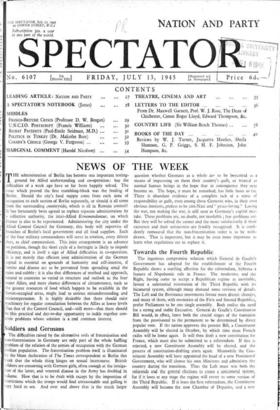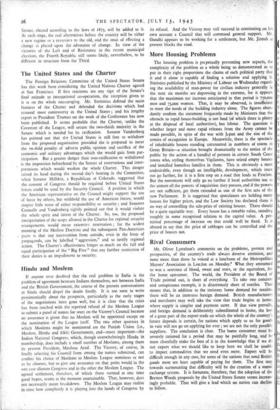Towards the Fourth Republic
The ingenious compromise solution which General de Gaulle's Government has adopted for the establishment of the Fourth Republic shows a startling affection for the referendum, hitherto a feature of Napoleonic rule in France. The moderates and the Right, having come to accept a Republican regime as inevitable, favour a substantial restoration of the Third Republic with its bicameral system, although many demand some revision of details. The Left and the Resistance movements favour more drastic changes, and many of them, with memories of the First and Second Republics, prefer Parliament to be one single assembly. Both realise the need for a strong and stable Executive. General de Gaulle's Constitution Bill would, in effect, leave both the crucial stages of the transition front the provisional to the permanent to be determined by direct popular vote. If the nation approves the present Bill, a Constituent Assembly will be elected in October, by which time most French exiles will be home again. It will then draft a new constitution for France, which must also be submitted to a referendum. If this is rejected, a new Constituent Assembly will be elected, and the process of constitution-drafting starts again. Meanwhile the Con- stituent Assembly will have appointed the head of a new Provisional Government, who will choose his own Ministers and administer the country during the transition. Thus the Left must win both the referenda and the general elections to create a unicameral system, for if it loses at any stage the regime will revert to some version of the Third Republic. If it loses the first referendum, the Constituent Assembly will become the new Chamber of Deputies, and a new Senate, elected according to the laws of 1875, will be added to it. At each stage, the real alternatives before the country will be either a new regime or a reversion to the old, and the onus of effecting a change is placed upon the advocates of change. In view of the victories of the Left and of Resistance in the recent municipal elections, the Fourth Republic still seems likely, nevertheless, to be different in structure from the Third.



























